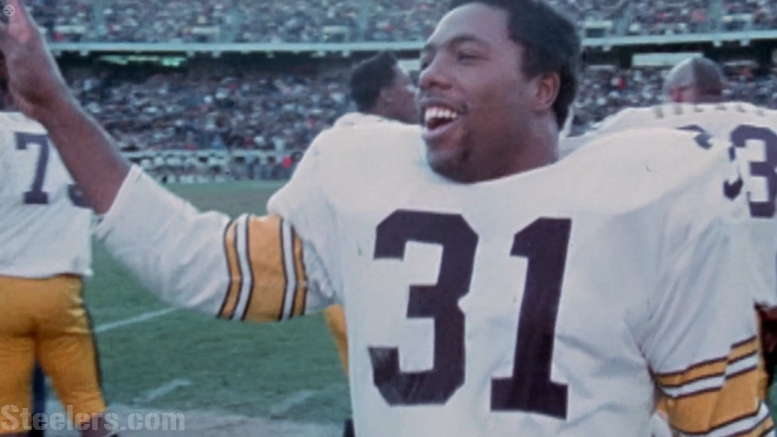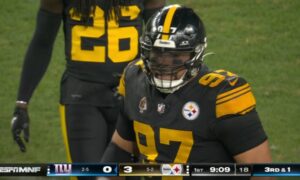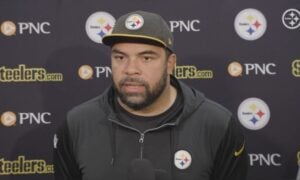The immense and transformative impact that Bill Nunn had in reshaping the fortunes of the Pittsburgh Steelers, particularly during the 1970s, is becoming increasingly well-documented, and solidified with his pending induction into the Pro Football Hall of Fame. The legendary scout played an integral role in building the roster of the dynasty years and helped to reshape how teams scouted.
But he also played a very intimate and direct role in convincing one Hall of Famer to join them. A panel recently took place involving many of those who knew Nunn to discuss and honor his legacy, and that included one of his greatest advocates, safety Donnie Shell, who signed with the Steelers as a college free agent following that legendary 1974 draft class.
He told a story explaining how it was Nunn who convinced him to sign with Pittsburgh, and not the Denver Broncos, one of the three teams who wanted to sign him, related to Teresa Varley for the team’s website, who wrote an article on the panel.
“I had the chance to go to Houston or Denver. This is what sold me on the Steelers,” Varley quotes Shell. “He said, ‘Coach (Chuck) Noll doesn’t care what school you went to. He likes players who are self-motivated and are going to work hard.’ That did it. My buddy was drafted by Denver the year before, and I was going there. When Bill shared that with me, I said, ‘I need to be in Pittsburgh.’”
The friend to which he refers has to be Barney Chavous, who also came out of Shell’s small-school HBCU of South Carolina State. Unlike Shell, though, Chavous was a second-round draft choice. While he would not receive any accolades, he would go on to have an accomplished 13-year starting career for the Broncos, and ranks third on the team’s all-time sack list with 75 (including those recorded before sacks became an official statistic).
Nunn, no surprise, included Chavous on one of his many All-American Teams that he published with the Pittsburgh Courier. Shell was also on Nunn’s All-American team the year before he signed with the Steelers.
Some players like Chavous, the third-highest player ever drafted out of his school and one of only four Top-50 selections, made it beyond the HBCU label before Nunn transformed the platform and helped put such players in the spotlight.
For many, however, that meant receiving scholarships from more prestigious football schools. And over time, the talent dispersed across the spectrum to what we see today. The great HBCU stars of yesteryear are the Alabama first-round picks of today.








